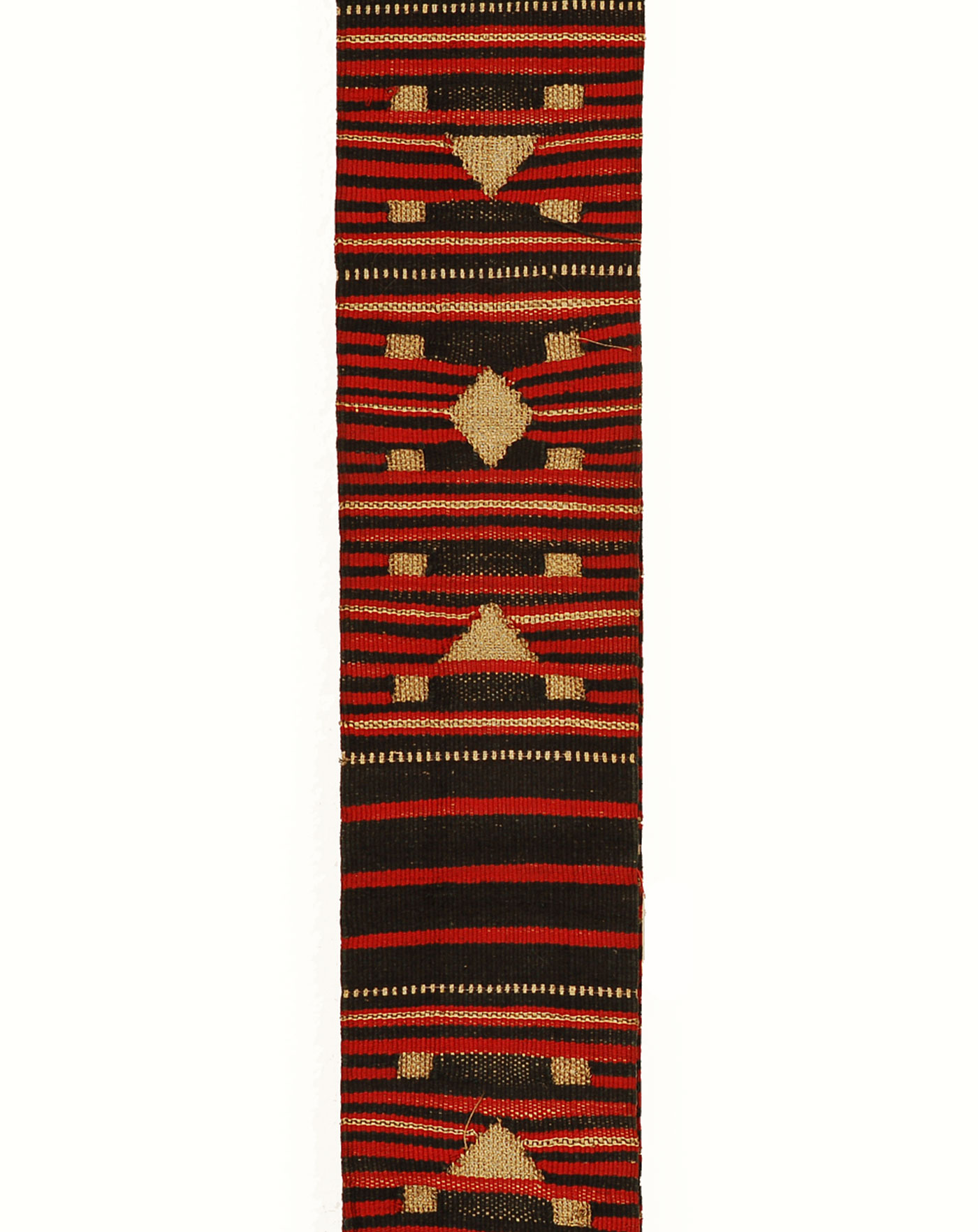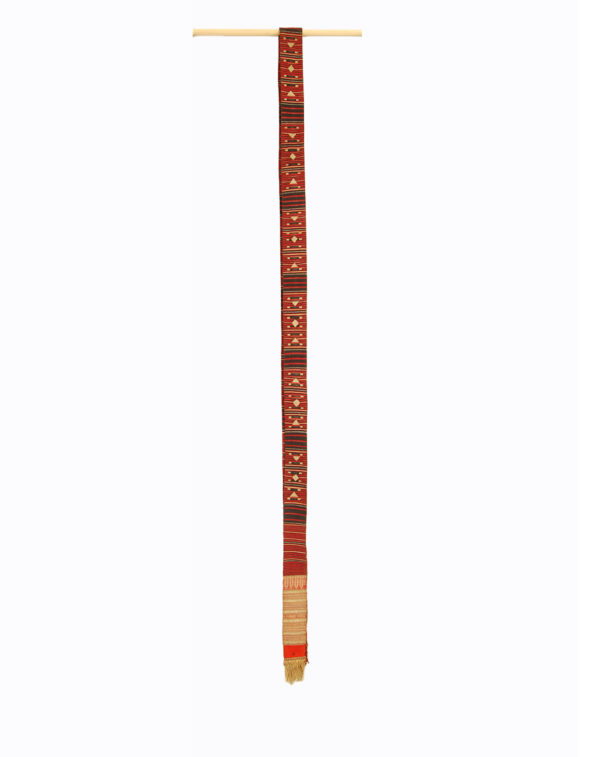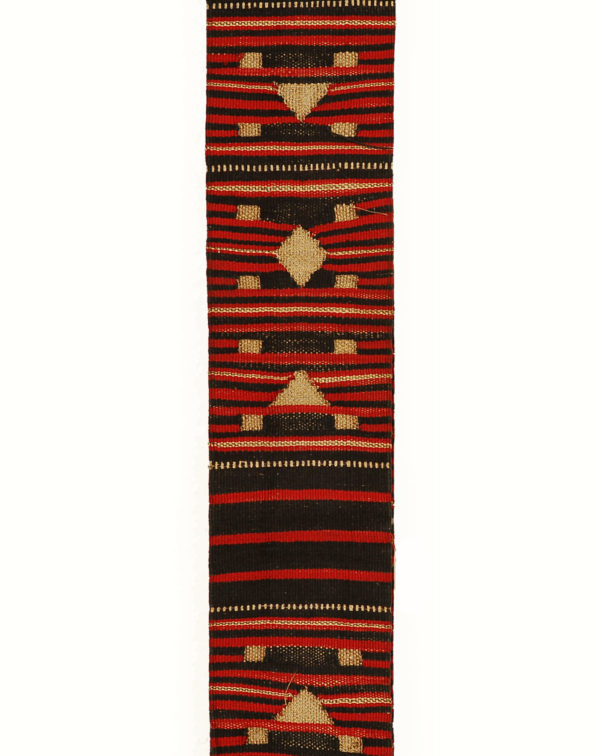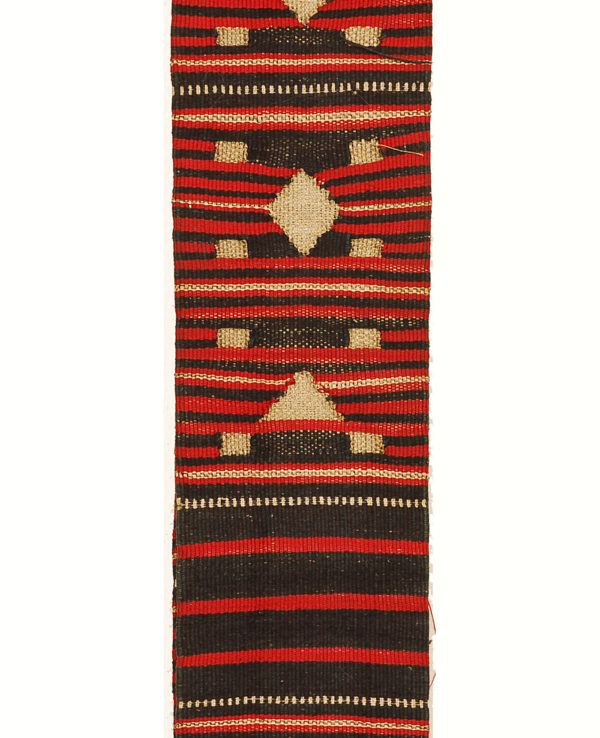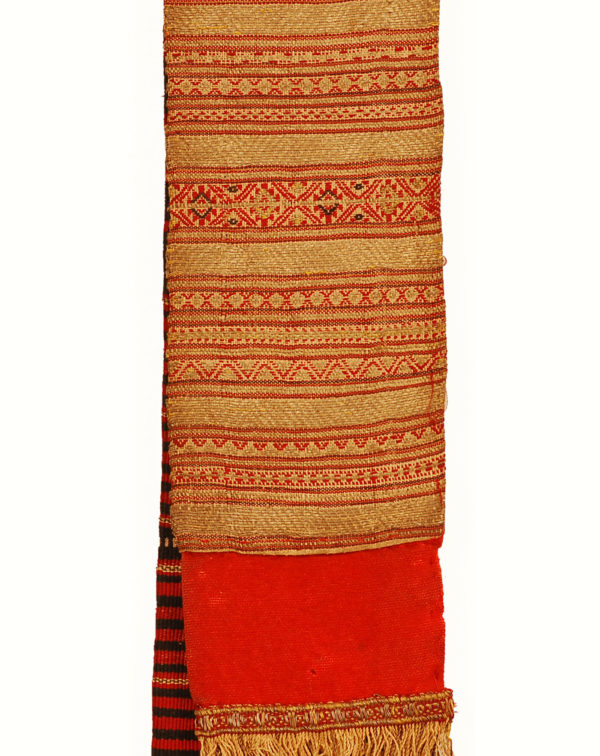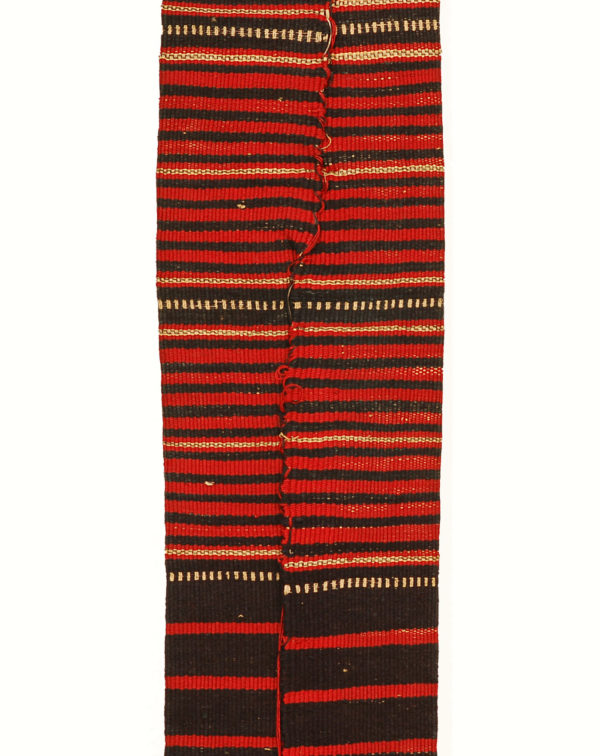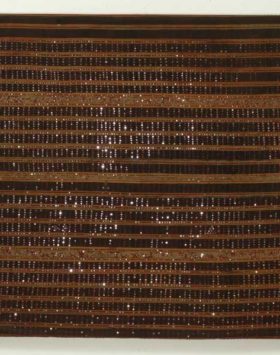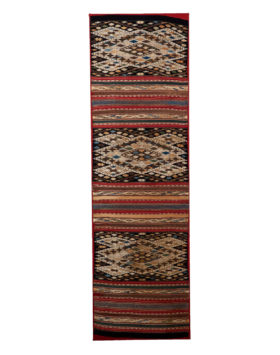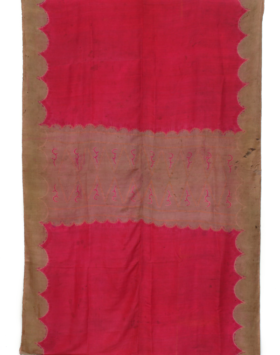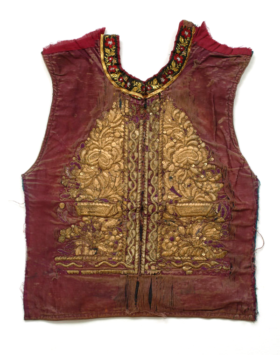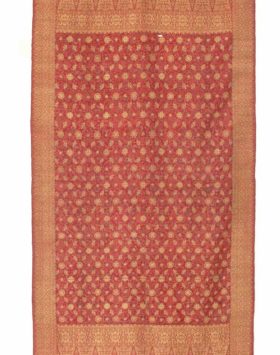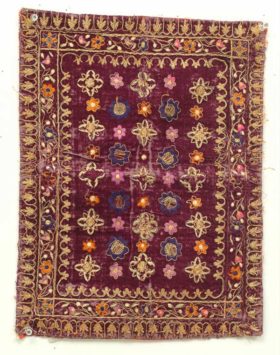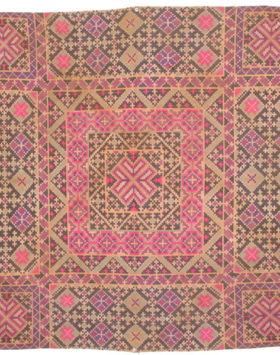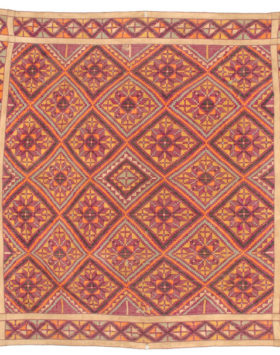Minangkabau Woven Sash
This Minangkabau woven sash (ikek pinggang) was made by Minangkabau weavers out of cotton, silk, wool, and gold. The Minangkabau are a historically matrilineal Muslim society organized in small democratically-run villages in Western Sumatra, known for their richly symbolic and regionally-specific ceremonial clothing. Since each village is run by democratic consensus, each locality has its own specific rules about what and how ceremonial clothing should be worn. Minangkabau people can therefore usually identify where strangers are from based on the way they wear their skirts, hats, and belts, or from the motifs woven into their clothing.
Western Sumatra has rich natural gold deposits and so it is hardly surprisingly that gold is one of the main decorative elements in much of the ceremonial clothing woven by Minangkabau textile artists. The maker of this waist sash consolidated most of the gold decoration to its ends. The overall design is composed of red and black stripes, sectioned off into even segments by dotted lines of white thread. In a repeating pattern, these square segments are grouped into threes with alternating triangle and square patterns in gold-wrapped thread, and each group of three is cushioned from the next with a segment not adorned with gold decoration. This belt was likely woven in the village of Solok because it is much narrower than belts woven in other regions. It also has a small piece of red wool trade cloth into its end panels, a common feature of ikek pinggang woven in Solok.
Circa: 19th to early 20th century
Origin: Sumatra, Indonesia
Material: Silk, cotton, wool, gold-wrapped thread
Condition: Good
Dimensions: 140" x 2.5"
Inventory number: TX4277
$850
SOLD
Call: (646) 370-6801
E-mail us: yosi@sarajo.com
